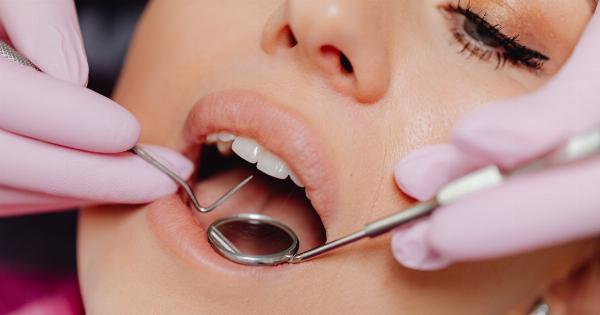Oral hygiene is crucial to maintain healthy teeth and gums, which are essential for a beautiful smile and overall health.
Dental insurance plays an essential role in oral healthcare, as it impacts how often people visit the dentist and receive necessary treatments. This article explores the impact of dental insurance on oral hygiene and how individuals can make the most out of their dental insurance policies.
Dental Insurance and Regular Dental Visits
One significant way dental insurance affects dental health is by encouraging people to schedule regular dental check-ups and cleanings.
Dental insurance policies typically cover bi-annual visits to the dentist, which aid in detecting dental problems early to prevent more extensive treatment and keep oral hygiene in check.
The frequency of dental visits also varies based on the patient’s needs. People with gum disease or at higher risk of tooth decay should schedule more frequent check-ups than others.
Dental insurance plans often provide coverage for additional visits for those that require more extensive care.
Dental Insurance and Preventive Care
Regular preventative dental care, such as dental cleanings, fluoride treatments, and sealants, can help prevent oral health problems from developing.
People with dental insurance are more likely to receive such preventive dental care, reducing the risk of developing oral health issues in the long run.
Many dental insurance policies also cover additional preventive treatments like preventive X-rays or oral cancer screenings.
By covering these preventive treatments, dental insurance encourages individuals to prioritize their oral health and makes dental hygiene accessible and affordable.
Dental Insurance and Restorative Care
Dental insurance does not only cover preventive care services; it also helps cover restorative dental treatments such as fillings, or root canals.
Dental insurance plans typically cover a portion of the cost, which makes them more accessible to those with limited budgets.
With dental insurance, people can avoid delaying or skipping out on necessary dental treatments due to financial constraints. Regular restorative care prevents dental problems from worsening and escalating to more expensive and painful treatments.
Dental Insurance and Orthodontic Treatment
Many dental insurance plans also cover orthodontic treatment, including traditional braces, Invisalign, and other aligners.
Orthodontic treatment can correct crooked teeth, overcrowding, and misaligned bites, which can cause difficulty in eating and talking and affect one’s self-confidence.
Orthodontic treatment can also have a significant impact on oral hygiene. Crooked teeth and crowded teeth can be difficult to clean, which can lead to gum disease, tooth decay, and other oral health problems.
By covering orthodontic treatment, dental insurance makes it possible for more people to achieve healthy, beautiful smiles without worrying about the financial burden.
How to Make the Most of Dental Insurance?
Understanding how dental insurance works and what it covers is vital to take significant benefit from dental insurance. Here are some tips to get the most out of dental insurance.
- Review the policy: Read the dental insurance policy in detail. Review the services covered and their associated costs.
- Stay in-network: Choose an in-network dentist to get dental care services at affordable rates.
- Use Benefits every year: Use all the benefits every year, including regular check-ups and cleanings and preventive treatments like fluoride and sealants, which are covered in most dental insurance policies.
- Choose the right plan: Choose a dental insurance policy that meets your needs. If you require frequent dental care services or orthodontic treatment, opt for a plan that covers these services.
- Be prepared: Save emergency funds for unexpected dental services, or consider purchasing supplemental dental insurance to cover lower costs.
Conclusion
In summary, dental insurance is integral to oral health. It encourages regular dental visits, preventive treatments, and necessary restorative treatments without significant financial burdens.
Individuals should take advantage of their dental insurance policies and prioritize their oral health for a beautiful and healthy smile.





























